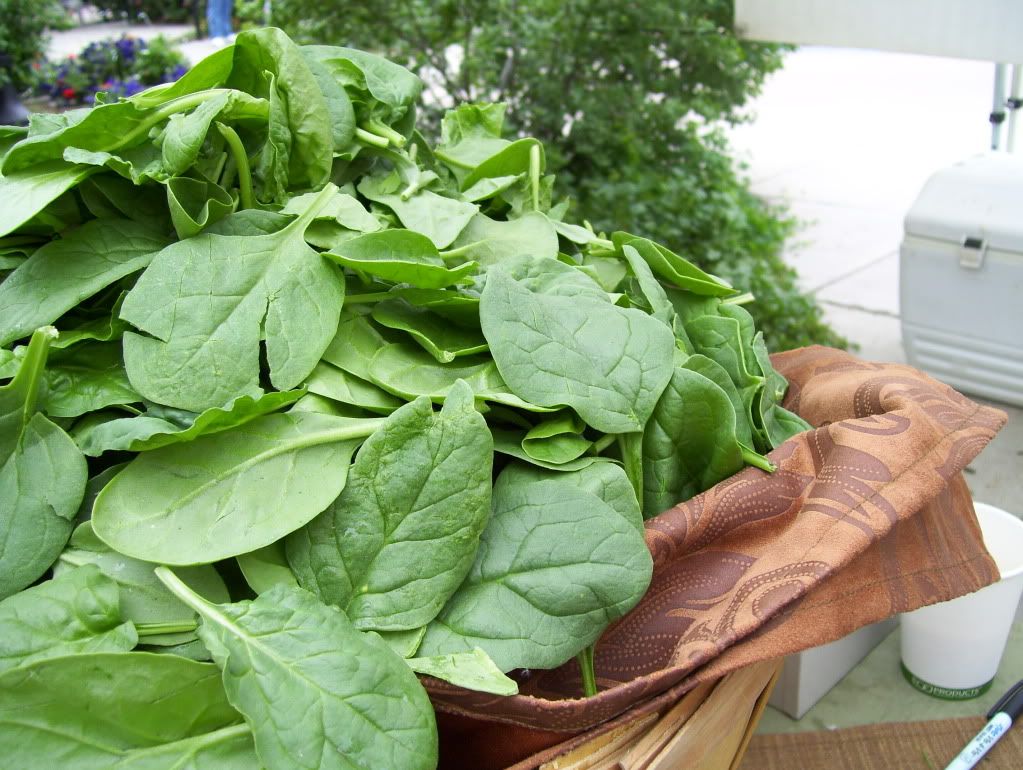Yesterday’s post reviewed the basics of vegetable storage. Make sense of those rules by understanding how vegetables continue breathing, even after they’re cut or plucked from the earth.
We hear a lot about how vegetables nurture us. But did you know that it works the other way, too? Nurture vegetables and they can do a better job of nurturing and nourishing us.

This discovery came while researching how to store spinach. It seemed like a pretty cut and dried topic until I ran across this statement, buried in some technical research document: “Despite having been detached from the plant, fruits and vegetables remain as living organs after harvest.”
That statement took a minute to wrap my head around. Subconsciously I’d always lumped vegetables with all the other inanimate objects in my shopping cart. Being severed from the ground seemed like pretty good evidence that they were dead. What’s more, in any megamarket vegetables are lined up for sale under bright fluorescent lights right alongside aisles of kid toys, lawn chairs, socks and razors. So who would think of produce being in a class of its own, one of living organisms as opposed to inanimate objects?
Seeing vegetables in the light of the living put a whole new spin on the topic of storage. All of a sudden, it didn’t seem quite right to just throw them in my shopping basket and then throw them in the frig at home. My veggies deserve more.
So back to my technical article I went. “Like all living tissues,” it continued, “harvested produce continues to respire throughout its postharvest life.” So quite unlike all the other packaged, bottled and canned food in my shopping basket, the fresh vegetables are still breathing.
In the simplest of terms, vegetable breathing is a process where “oxygen is consumed and water, carbon dioxide, and energy are released.” The point of this process is to break down carbohydrates into “their constituent parts to produce energy to run cellular processes.”
Here’s the kicker, though: When we’re talking about harvested produce, the carbohydrates being broken down to run a plant’s cellular processes are its own carbohydrates! You could say that a harvested vegetable is essentially cannibalizing itself in a valiant attempt to remain as alive as it can be. Hour by hour, day by day, with each breath, “compounds that affect plant flavor, sweetness, weight, turgor (water content), and nutritional value are lost.”
What does all this mean for ordinary vegetable shoppers? It means that to reap the amazing flavor and essential nutrients that vegetables offer, we must handle them as depleting assets. In other words, our job as vegetable purchasers is one of emergency triage: What can we do to staunch the flood of flavor, sweetness, water content and nutrients streaming from our carefully selected produce?
Buying at Farmers Markets is a good first step. It automatically puts you ahead in the depleting assets game, since produce is generally harvested either the night before or morning of the market. (Many thanks to the farmers who are up picking at 4:00 a.m. to get us the freshest produce possible.) This means you have at least a two to three day flavor advantage over produce picked a thousand miles away, shipped to a warehouse, delivered to the grocery store, then displayed for a while in the produce aisle.
This kind of flavor and nutrition advantage is not something you want to squander:
- Get your produce home as quickly as possible (skip the temptation to run errands on the way home, especially as the weather turns hot.)
- On hot days, bring a cooler and icepack so your veggies can ride home in air conditioned comfort. If you forget, buy something frozen (e.g., meat) to pack with your most delicate greens and keep them in the shadiest part of the car. Scrounge up a cardboard box and you’ll even get a little insulative benefit.
- Finally, once home, get your veggies into plastic bags, close loosely and pop into the frig immediately.
How can such simple steps be so important? Each helps slow the respiration process, either by chilling or limiting exposure to air, so your veggies don’t expire any more of their flavor and nutrition than they have to. It’s easy to take our incredible produce for granted, but it deserves better!
Find out more about how to reap delicious delight from vegetables with Vegetable a Month online magazine.